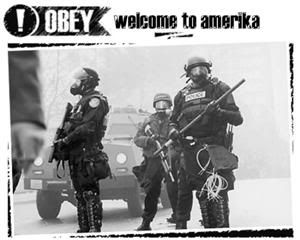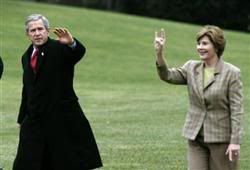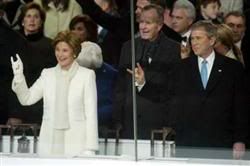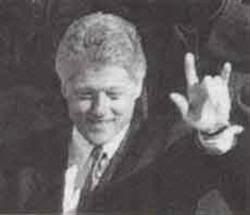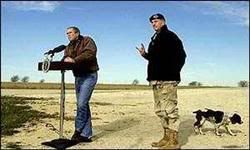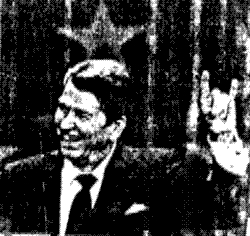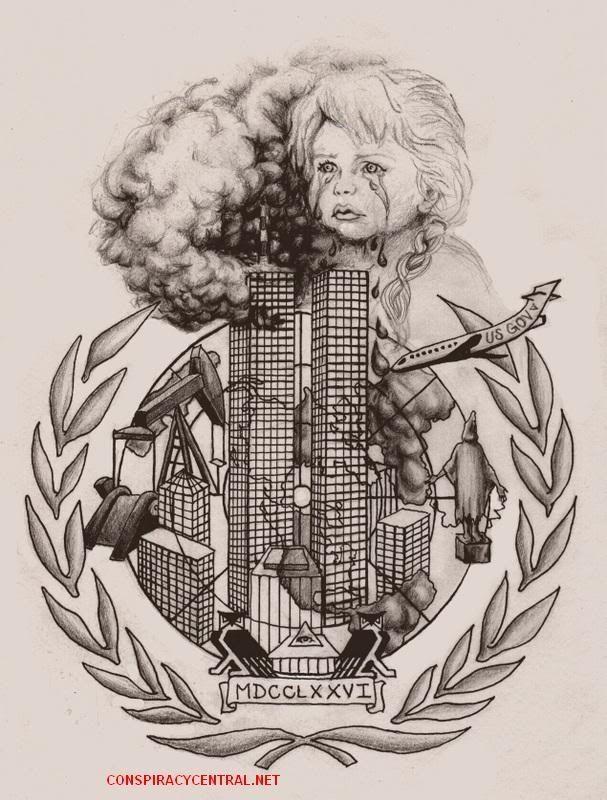BBC Reported Building 7 Had Collapsed 20 Minutes Before It Fell
BBC Reported Building 7 Had Collapsed 20 Minutes Before It Fell
Revealing, shocking video shows reporter talking about collapse with WTC 7 still standing in background, Google removes clip
Paul Joseph Watson & Alex Jones
Prison Planet
Monday, February 26, 2007 (UPDATED 7:58PM CST)
An astounding video uncovered from the archives today shows the BBC reporting on the collapse of WTC Building 7 over twenty minutes before it fell at 5:20pm on the afternoon of 9/11. The incredible footage shows BBC reporter Jane Standley talking about the collapse of the Salomon Brothers Building while it remains standing in the live shot behind her head.
Minutes before the actual collapse of the building is due, the feed to the reporter mysteriously dies.
This amazing clip was on Google Video, but was removed within hours of the story breaking. A You Tube upload (still processing) is embedded above but we fully expect this to be removed soon. You can watch it for the time being at this link and also here. A WMV link is here (on our server) and a Quicktime here. Bit torrent versions of the file can be found here. An avi version can be found here. We are attempting to compile numerous mirrors of the video file. Skip forward to around the 14:30 minute mark. We expect the surviving links to quickly disappear, so we've also uploaded an FLV file to our own server. Click here to download. You'll need a free player that plays FLV files, a selection of which can be found here. Please use this download to create mirror copies in all formats and e mail the links to us.
To be clear, the Salomon Brothers Building is just a different name for Building 7 or WTC 7.
Although there is no clock or time stamp on the footage, the source claims the report was given at 4:57pm EST, 23 minutes before Building 7 collapsed at 5:20pm. While the exact time of the report cannot be confirmed at present, it is clear from the footage that the reporter is describing the collapse of WTC 7 while it clearly remains standing behind her in the live shot.
Here are some further screenshots from the video.
The fact that the BBC reported on the collapse of Building 7 over twenty minutes in advance of its implosion obviously provokes a myriad of questions as to how they knew it was about to come down when the official story says its collapse happened accidentally as a result of fire damage and debris weakening the building's structure.
---------------------------------------------------------------------------------------------------------------
The Internet leader in activist media - Prison Planet.tv. Thousands of special reports, videos, MP3's, interviews, conferences, speeches, events, documentary films, books and more - all for just 15 cents a day! Click here to subscribe!
---------------------------------------------------------------------------------------------------------------
As we have documented before, firefighters, police and first responders were all told to get back from the building because it was about to be brought down. It is widely acknowledged by those who were there on the scene that warnings were issued for people to evacuate the area in anticipation of the building's collapse, with some even stating that a 20 second countdown preceded the collapse of the 47-story skyscraper, again clearly suggesting that it was taken down by means of explosives as the video footage of its implosion illustrates.
Alex Jones' film Terror Storm documents how Thermate was the likely culprit for the implosion of the twin towers and also explores the collapse of WTC 7.
In a September 2002 PBS documentary, the owner of the WTC complex Larry Silverstein discusses Building 7 and states that in the late afternoon of September 11, the decision was made to "pull it." The term "pull it" is industry jargon for controlled demolition, but Silverstein denied charges that WTC 7 had been deliberately brought down.
This newly uncovered video confirms that the collapse of WTC 7 was no surprise, because television news stations were reporting on it before it happened!
This footage is absolutely amazing and should provoke a firestorm of new questions aimed both at Silverstein and the BBC. Who told the BBC that the building was going to collapse before it did and why were they reporting its fall in advance of the event actually taking place?
Many have speculated that some kind of press release was leaked too soon and AP wires, radio stations and TV news outlets prematurely reported on WTC 7's collapse.
The video also severely undermines the credibility of the BBC who recently caused controversy by airing a 9/11 hit piece that sought to debunk questions that bring the official story into doubt.
Calls have already been put through to the BBC reporting the "mistake," click here to listen to an MP3. The BBC have promised to "look into it."
Moronic commenters on Digg are already trying to bury the story, yet none of them have an answer as to why the BBC reported the building's collapse before it happened. Click here to add your own comment and counter the debunkers.
ACTION: E Mail the BBC and ask them to clarify exactly why their reporter is announcing the collapse of Building 7 before it has collapsed.
Revealing, shocking video shows reporter talking about collapse with WTC 7 still standing in background, Google removes clip
Paul Joseph Watson & Alex Jones
Prison Planet
Monday, February 26, 2007 (UPDATED 7:58PM CST)
An astounding video uncovered from the archives today shows the BBC reporting on the collapse of WTC Building 7 over twenty minutes before it fell at 5:20pm on the afternoon of 9/11. The incredible footage shows BBC reporter Jane Standley talking about the collapse of the Salomon Brothers Building while it remains standing in the live shot behind her head.
Minutes before the actual collapse of the building is due, the feed to the reporter mysteriously dies.
This amazing clip was on Google Video, but was removed within hours of the story breaking. A You Tube upload (still processing) is embedded above but we fully expect this to be removed soon. You can watch it for the time being at this link and also here. A WMV link is here (on our server) and a Quicktime here. Bit torrent versions of the file can be found here. An avi version can be found here. We are attempting to compile numerous mirrors of the video file. Skip forward to around the 14:30 minute mark. We expect the surviving links to quickly disappear, so we've also uploaded an FLV file to our own server. Click here to download. You'll need a free player that plays FLV files, a selection of which can be found here. Please use this download to create mirror copies in all formats and e mail the links to us.
To be clear, the Salomon Brothers Building is just a different name for Building 7 or WTC 7.
Although there is no clock or time stamp on the footage, the source claims the report was given at 4:57pm EST, 23 minutes before Building 7 collapsed at 5:20pm. While the exact time of the report cannot be confirmed at present, it is clear from the footage that the reporter is describing the collapse of WTC 7 while it clearly remains standing behind her in the live shot.
Here are some further screenshots from the video.
The fact that the BBC reported on the collapse of Building 7 over twenty minutes in advance of its implosion obviously provokes a myriad of questions as to how they knew it was about to come down when the official story says its collapse happened accidentally as a result of fire damage and debris weakening the building's structure.
---------------------------------------------------------------------------------------------------------------
The Internet leader in activist media - Prison Planet.tv. Thousands of special reports, videos, MP3's, interviews, conferences, speeches, events, documentary films, books and more - all for just 15 cents a day! Click here to subscribe!
---------------------------------------------------------------------------------------------------------------
As we have documented before, firefighters, police and first responders were all told to get back from the building because it was about to be brought down. It is widely acknowledged by those who were there on the scene that warnings were issued for people to evacuate the area in anticipation of the building's collapse, with some even stating that a 20 second countdown preceded the collapse of the 47-story skyscraper, again clearly suggesting that it was taken down by means of explosives as the video footage of its implosion illustrates.
Alex Jones' film Terror Storm documents how Thermate was the likely culprit for the implosion of the twin towers and also explores the collapse of WTC 7.
In a September 2002 PBS documentary, the owner of the WTC complex Larry Silverstein discusses Building 7 and states that in the late afternoon of September 11, the decision was made to "pull it." The term "pull it" is industry jargon for controlled demolition, but Silverstein denied charges that WTC 7 had been deliberately brought down.
This newly uncovered video confirms that the collapse of WTC 7 was no surprise, because television news stations were reporting on it before it happened!
This footage is absolutely amazing and should provoke a firestorm of new questions aimed both at Silverstein and the BBC. Who told the BBC that the building was going to collapse before it did and why were they reporting its fall in advance of the event actually taking place?
Many have speculated that some kind of press release was leaked too soon and AP wires, radio stations and TV news outlets prematurely reported on WTC 7's collapse.
The video also severely undermines the credibility of the BBC who recently caused controversy by airing a 9/11 hit piece that sought to debunk questions that bring the official story into doubt.
Calls have already been put through to the BBC reporting the "mistake," click here to listen to an MP3. The BBC have promised to "look into it."
Moronic commenters on Digg are already trying to bury the story, yet none of them have an answer as to why the BBC reported the building's collapse before it happened. Click here to add your own comment and counter the debunkers.
ACTION: E Mail the BBC and ask them to clarify exactly why their reporter is announcing the collapse of Building 7 before it has collapsed.



